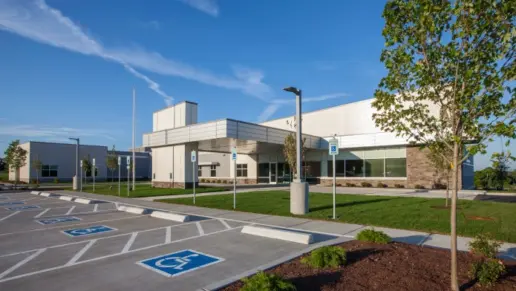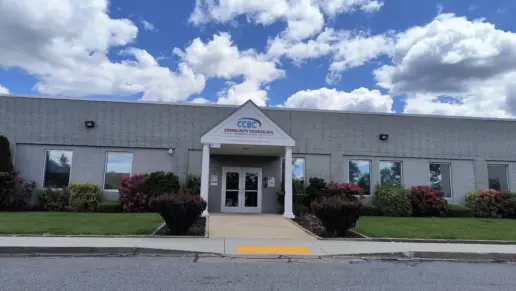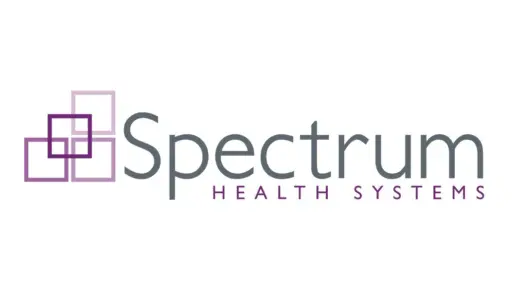I was somewhat skeptical of care here, but was very relieved to realize that the majority of people who work at the inpatient adult facility were very helpful, genuinely concerned and I am truly grateful for their complete care. Nurses, doctor, social workers, day staff, gro ...
About McLean – SouthEast
McLean (SouthEast) is located on Isaac Street in Middleborough, Massachusetts. The facility is a satellite treatment center for McLean Hospital. They have services for children, adolescents, and adults. The specialties are behavioral medicine, psychiatry, and psychology. They can help with substance use disorder treatment and dual diagnosis (co occurring disorders). The center accepts many major insurance carriers. They also take Medicaid. On April 1st, Medicaid reverted to the regular annual renewal. If you have Medicaid, make sure it was renewed because if the state didn’t have your current information, your coverage may have been dropped.
Co occurring disorders are mental health issues like borderline personality disorder, anxiety, depression, and bipolar disorder. Trauma and post traumatic stress disorder (PTSD) are also co occurring mental health issues as are schizophrenia and eating disorders.
Co occurring mental health disorders play a big part in substance use since they are often the driving factor. If you have anxiety or depression, you may be using substances to self medicate from the pain of your disorder.
If necessary, you can get into an inpatient psychiatric program at the Isaac Street facility to help you deal with your co occurring disorders. The length of stay is based on your unique needs. Your doctor will develop a treatment plan, and you’ll be expected to begin working on a discharge plan as soon as you’re admitted. Children and adolescents can also get care for their behavioral health disorders at the center.
Inpatient behavioral treatment may include medications if appropriate. Most of the therapy offered is group therapy. The therapies include symptom management, cognitive behavioral therapy (CBT), dialectical behavioral therapy (DBT), and emotion regulation.
The inpatient program also includes activity groups such as developing new coping skills. You’ll also have arts and crafts and time for leisure activities. If you would like your family may also be involved in your treatment.
Latest Reviews
Rehab Score
Accepted Insurance

Other Forms of Payment
Private insurance refers to any kind of healthcare coverage that isn't from the state or federal government. This includes individual and family plans offered by an employer or purchased from the Insurance Marketplace. Every plan will have different requirements and out of pocket costs so be sure to get the full details before you start treatment.
Self-pay involves paying for treatment out of your own pocket. You can use savings or credit, get a personal loan, or receive help from family and friends to fund your treatment. If you don't have insurance or your insurance plan doesn't cover a specific program, self-pay can help ensure you still get the care you need.
Financial aid can take many forms. Centers may have grants or scholarships available to clients who meet eligibility requirements. Programs that receive SAMHSA grants may have financial aid available for those who need treatment as well. Grants and scholarships can help you pai for treatment without having to repay.
Sliding scale payments are based on a client's income and family size. The goal is to make treatment affordable to everyone. By taking these factors into account, addiction recovery care providers help ensure that your treatment does not become a financial burden to you or your family, eliminating one barrier to care.
Medicare is a federal program that provides health insurance for those 65 and older. It also serves people under 65 with chronic and disabling health challenges. To use Medicare for addiction treatment you need to find a program that accepts Medicare and is in network with your plan. Out of pocket costs and preauthorization requirements vary, so always check with your provider.
Medicaid is a state based program that helps lower-income individuals and families pay for healthcare. Medicaid covers addiction treatment so those enrolled can use their coverage to pay for rehab. When a program accepts Medicaid the client often pays very little or nothing out of their own pocket.
Military members, veterans, and eligible dependents have access to specific insurance programs that help them get the care they need. TRICARE and VA insurance can help you access low cost or no cost addiction and mental health treatment. Programs that accept military insurance often have targeted treatment focused on the unique challenges military members, veterans, and their families face.
Addiction Treatments
Levels of Care
Treatments
Many of those suffering from addiction also suffer from mental or emotional illnesses like schizophrenia, bipolar disorder, depression, or anxiety disorders. Rehab and other substance abuse facilities treating those with a dual diagnosis or co-occurring disorder administer psychiatric treatment to address the person's mental health issue in addition to drug and alcohol rehabilitation.
Mental health rehabs focus on helping individuals recover from mental illnesses like bipolar disorder, clinical depression, anxiety disorders, schizophrenia, and more. Mental health professionals at these facilities are trained to understand and treat mental health issues, both in individual and group settings.
Programs




Clinical Services
Cognitive Behavioral Therapy (CBT) is a therapy modality that focuses on the relationship between one's thoughts, feelings, and behaviors. It is used to establish and allow for healthy responses to thoughts and feelings (instead of unhealthy responses, like using drugs or alcohol). CBT has been proven effective for recovering addicts of all kinds, and is used to strengthen a patient's own self-awareness and ability to self-regulate. CBT allows individuals to monitor their own emotional state, become more adept at communicating with others, and manage stress without needing to engage in substance abuse.
Dialectical Behavior Therapy (DBT) is a modified form of Cognitive Behavioral Therapy (CBT), a treatment designed to help people understand and ultimately affect the relationship between their thoughts, feelings, and behaviors. DBT is often used for individuals who struggle with self-harm behaviors, such as self-mutilation (cutting) and suicidal thoughts, urges, or attempts. It has been proven clinically effective for those who struggle with out-of-control emotions and mental health illnesses like Borderline Personality Disorder.
Group therapy is any therapeutic work that happens in a group (not one-on-one). There are a number of different group therapy modalities, including support groups, experiential therapy, psycho-education, and more. Group therapy involves treatment as well as processing interaction between group members.
In individual therapy, a patient meets one-on-one with a trained psychologist or counselor. Therapy is a pivotal part of effective substance abuse treatment, as it often covers root causes of addiction, including challenges faced by the patient in their social, family, and work/school life.
Trauma therapy addresses traumatic incidents from a client's past that are likely affecting their present-day experience. Trauma is often one of the primary triggers and potential causes of addiction, and can stem from child sexual abuse, domestic violence, having a parent with a mental illness, losing one or both parents at a young age, teenage or adult sexual assault, or any number of other factors. The purpose of trauma therapy is to allow a patient to process trauma and move through and past it, with the help of trained and compassionate mental health professionals.
Couples therapy in Massachusetts is a short term therapy designed to equip you both with the skills you need to address conflicts and challenges in your relationship. During sessions, your counselor may meet with you individually and together.
They understand that psychiatric illness affects not only the individual but also the entire family, which is why their compassionate and experienced staff takes a comprehensive approach to treatment and recovery, incorporating loved ones in patient care as appropriate. Family involvement is a central component to treatment, with the permission of the patient, and regular family visits are built into the treatment schedule alongside family education to strengthen the patient’s social support system and improve management of the stress of caring for a loved one with mental illness.
Amenities
-
Residential Setting
-
Private Rooms
Staff & Accreditations
Staff

Program Director

Medical Director

Nurse Director

Associate Medical Director
Accreditations

The Joint Commission, formerly known as JCAHO, is a nonprofit organization that accredits rehab organizations and programs. Founded in 1951, the Joint Commision's mission is to improve the quality of patient care and demonstrating the quality of patient care.
Joint Commission Accreditation: Yes
Contact Information
23 Isaac Street
Middleboro, MA 02346


